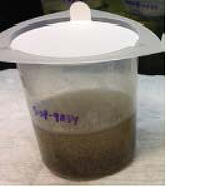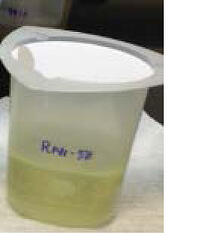
SilcoTek offers coatings for many applications, but are they FDA compliant? And what does an FDA compliant coating really mean?
Does SilcoTek Offer FDA Compliant Coatings?
Yes! Our Dursan® coating is certified by NSF International and therefore FDA compliant. However, most people ask about "FDA approval", and that question needs a more thorough explanation.
|
In this blog post you will learn:
- The difference between FDA compliance and approval. And how when companies say "FDA approved" they really mean "FDA compliant".
- How FDA compliant may not be the iron clad guarantee you think it is.
- How Dursan meets FDA compliance criteria.
- How Dursan CVD coating benefits medical diagnostics and HPLC applications.
|
Have a question about this blog or FDA compliance? Click the box below to discuss your application with one of our coating scientists.
Have a Question? Contact Our Technical Service Team
What does FDA approved mean?
The United States Food and Drug administration (FDA) does not formally "approve" coatings or other materials for food or bio/pharmaceutical contact. Rather, the FDA regulates coatings via the Code of Federal Regulations (CFR), specifically 21 CFR 175.300 which lists what raw materials are acceptable and unacceptable for the formulation of coatings. It is then up to the coating supplier to self-regulate to ensure compliance with the standard and assure they are using raw materials that are acceptable.
According to the FDA, a coating must:
1) Pass the solvent extraction tests listed in 21 CFR 175.300.
2) Contain no heavy metals.
3) All coating components conform to the materials listed by the FDA in order to be compliant.
Since these stipulations are also required for NSF/ANSI 51 certification and Dursan® successfully meets these requirements, our coating is FDA compliant.
With respect to pharmaceutical applications, our data suggest that Dursan® does not "alter the safety, identity, strength, quality, or purity of the drug product beyond the official or other established requirements" per 21 CFR 211.65.

Nevertheless, we strongly encourage customers to test the use of Dursan® in their specific application to verify that performance requirements are met and the customer's production processe and output can continue to meet FDA approval guidelines. A product may comply with the FDA standard but specific testing for your application likely was not part of the FDA criteria. So any product claiming FDA compliance should be evaluated for your application.
How CVD Coatings Benefit HPLC and Medical Devices?
Dursan acts as a mirco-thin inert barrier, preventing sample or product contact with reactive base materials. Dursan is a precision coating that does not significantly impact tolerances but can be applied to intricate parts like needles or tubing. Key Dursan benefits are:
Improved corrosion resistance means less pitting and flowpath contamination.
How do inert CVD coatings help when solving HPLC test problems? Dursan resists many corrosives commonly used in medical diagnostics and HPLC applications like hydrochloric acid and bleach. In fact Dursan will prevent surface pitting even after hundreds of cleaning immersion cycles. Comparative tests show Dursan improves corrosion resistance by an order of magnitude over uncoated stainless steel.
/Bleach%20ss%20vs%20dursan.jpg?width=320&name=Bleach%20ss%20vs%20dursan.jpg)
Identifying and Preventing Metal Ion Leaching
Immersion of stainless steel in bleach can result in fluid contamination as illustrated in this immersion test. The bleach in this photo is contaminated by the corroded stainless steel, turning the beaker contents dark green.

Dursan coated samples do not contaminate the bleach, assuring an uncontaminated flowpath and true-to-test results.

Learn how to make HPLC and medical diagnostic instruments true-to-test.

Have a question about coating applications or coating certification and compliance? Ask the experts. Contact us or reach out to us on LinkedIn.



/Bleach%20ss%20vs%20dursan.jpg?width=320&name=Bleach%20ss%20vs%20dursan.jpg)




